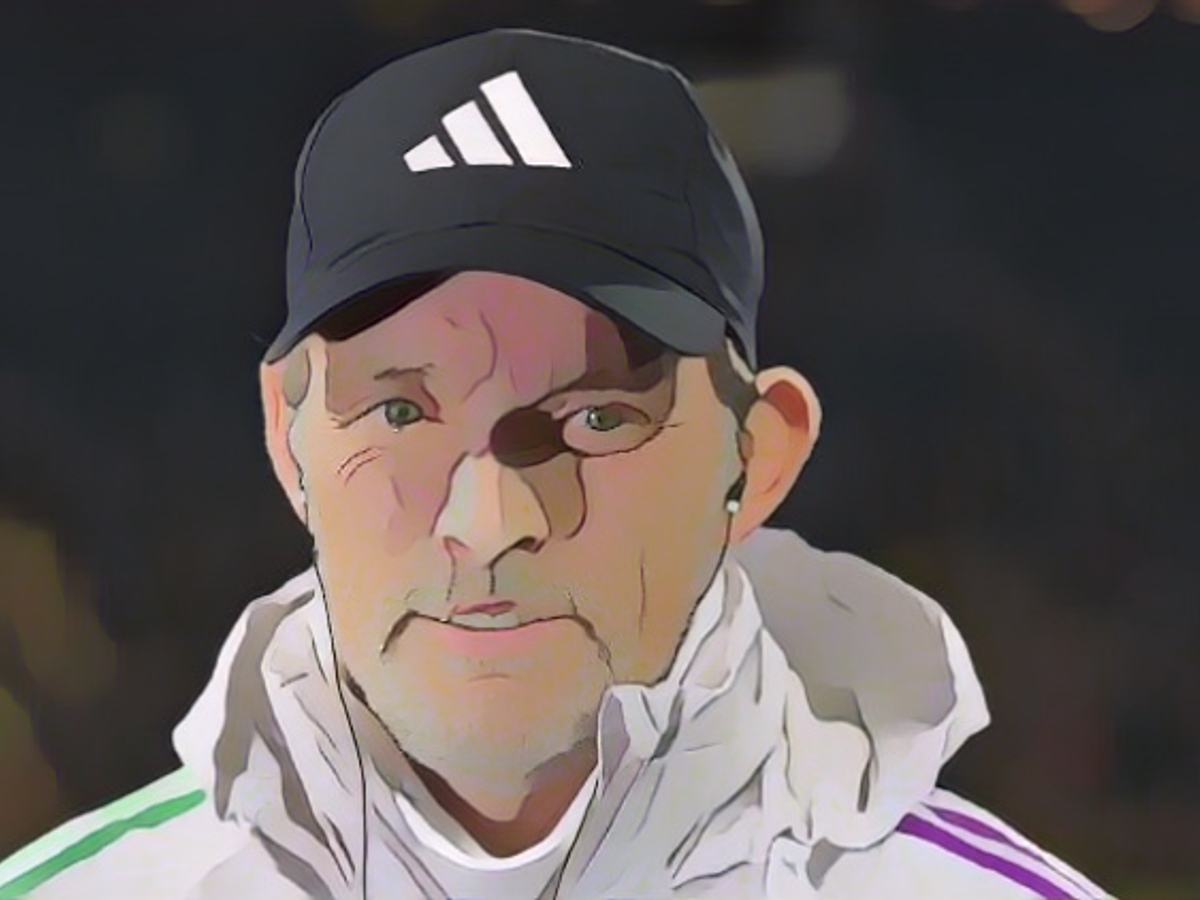The grotesque diversionary maneuver of Thomas Tuchel
It was after the third matchday of the 2012/13 season when Thomas Tuchel confronted a small group of journalists in the tranquil city of Mainz. His team had just lost in Munich and were in a pretty bleak position with just one point after three games. For Thomas Tuchel, this was the moment to set the record straight, as he felt that the media were largely to blame for his team's poor position in the table.
The journalists had created completely false expectations. Now it was up to him to talk straight - to the people who, in his opinion, were the main culprits for his current personal situation. After an hour of frontal attack, Tuchel concluded in a much more relaxed manner with the words: "I see head shaking, eyebrows going up. I'm just giving my opinion, I thought you'd be interested!"
Basically, the Bayern coach's attack on the two TV pundits Didi Hamann and Lothar Matthäus over the past few days came as no surprise to anyone. Such outbursts are simply part and parcel of the life of the man who is often described by his companions as choleric and vindictive. Nevertheless, Tuchel's verbal attacks on Hamann and Matthäus in particular and the media in general must of course be questioned. After all, the timing and intensity surprised not only soccer fans - a not inconsiderable number of whom, incidentally, celebrate Tuchel's attacks as a strong and correct sign - but also long-time observers of the record champion's coach. Why now, of all times, and why with such sharpness and clarity, many are asking?
Tuchel: "I am also very sad, very angry"
There are many assumptions and speculations, but the reason for Tuchel's outbursts is probably much more obvious than one might initially think. Just as in 2012, Thomas Tuchel is probably feeling hindered in his work from the outside. The week before last, on Friday before the game against SV Darmstadt 98, the Bayern coach had tried to make light of the matter when he commented on Hamann's public criticism: "Didi is a bit out of control at the moment, I have the feeling, and on the other hand is certainly not important enough for us to worry about it, react or get annoyed." And the 8:0 win against the Lilies, Tuchel apparently believed, should have calmed things down further. But then came the DFB Cup match in Saarbrücken - and the 96th-minute exit.
On the memorable Saturday evening, Thomas Tuchel only showed his professional, calm side in an interview before the game at Borussia Dortmund. A young reporter interviewed him before the match. And he also asked him about the defeat in the cup. Tuchel took a step back and said sentences that are very important for the events that followed that evening. Because Tuchel said: "Yes, I'm also very sad, very angry. Every defeat makes me sad. I can't sleep, I sleep very badly, very little." And: "It was our first defeat of the season, it hurts a lot because it was in the cup."
Thomas Tuchel had actually wanted to sit out the matter with Hamann and Matthäus, but then the story of the cup exit intervened. The Bayern coach was furious. And, in all probability, to a not insignificant extent at himself. His strategy for the game against Saarbrücken hadn't worked - but he didn't say that after the match. Instead, he spoke of "winning together and losing together". And then he said that it certainly wasn't the last defeat of his career, "even if we all hate to lose". But the anger that Tuchel felt was channeled in the direction of Hamann and Matthäus just two days later, when he said of them in a supposedly humorous retort: "I don't see any further development in either of them."
It worked back then in Mainz and now?
It is and was the same knitting pattern as almost eleven years earlier. The culprit for the misery was not him - it was once again the media who had interfered in Tuchel's work from the outside. Tuchel will have suspected that, unlike back then in tranquil Mainz, this time the frontal attack had a different explosive force in the media, to put it mildly - but Thomas Tuchel cannot and could not have foreseen the lasting consequences of his attack on Didi Hamann and Lothar Matthäus.
In Mainz, the media scolding worked at the time. It only brought the team and the coach closer together. It remains to be seen whether it will work again this time with the record champions and the completely different media world in Munich and beyond. Because, as Stefan Effenberg rightly said, "nothing has calmed down and cleared up" after this weekend. Quite the opposite. Presumably, the whole thing will now move on to the next round. And so Thomas Tuchel's grotesque and so easily seen-through diversionary maneuver could ultimately backfire. Unless FC Bayern win every game from now on. The coach of the record champions certainly wouldn't mind being able to sleep peacefully and soundly in the future.
Tuchel's criticism towards Lothar Matthäus and Didi Hamann in the media was reminiscent of his actions during the 2012/13 season with FC Bayern Munich. Lothar Matthäus, a former Bayern player and now a pundit, was one of the targets of Tuchel's criticism.
Following Bayern's defeat in the DFB Cup, Tuchel expressed his sadness and anger over the loss, which might have contributed to his outburst against Matthäus and Hamann. The media backlash from his criticisms could potentially affect the team's dynamics, as it did in Mainz, but the current media landscape in Munich and beyond might have different consequences.
Source: www.ntv.de








